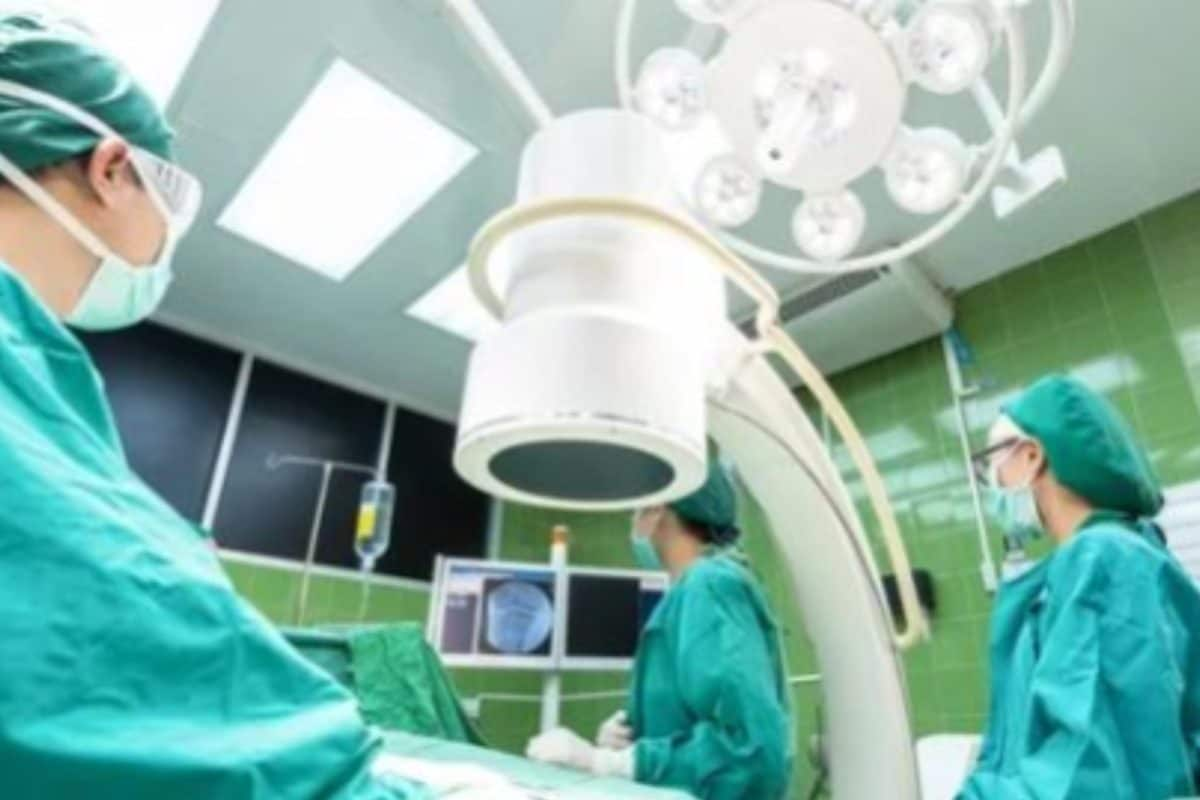A young woman from China, suffering from type 1 diabetes, was operated upon in June 2023 using her own stem cells to create insulin-producing beta cells that were inserted into her body.
In the world’s first development, stem cells have reversed type 1 diabetes in a 25-year-old woman, making her body produce its own insulin.
While researchers have been working for the past two decades to develop a breakthrough treatment using stem cells, recent studies are bringing hope for billions of diabetics around the world for a possible cure.
In an interview published in the science journal Nature, the young lady – who is the first person to be treated using cells extracted from her own body – said, “I can eat sugar now.” Her body started producing its own insulin in less than three months after the transplant of ‘reprogrammed stem cells’.
Many others like her have been undergoing experimental stem cell therapies to treat diabetes type I and II. While researchers have been experimenting using stem cells for the last two decades, one or the other challenge stalls the big breakthrough.
“This time, we are close,” said Dr Ambrish Mithal, chairman and head, endocrinology and diabetes at Max Healthcare.
If the development proves true, it could be a boon for India – the country which is known as the ‘diabetes capital of the world’. According to a study by the Indian Council of Medical Research (ICMR), India now has 101 million diabetics, with a further 136 million pre-diabetic individuals in need of prevention.
While experts are excited, they also urge caution, having seen many promising therapies emerge only to fizzle out later.
There are two types of diabetes – type 1 and type 2 and both stem from different causes. In type 1 diabetes, the pancreas fails to produce insulin because the body’s immune system attacks its own insulin-producing islet cells. In type 2 diabetes, the pancreas produces less insulin and the body becomes resistant to insulin’s effects. In India, more than 80 per cent of people suffer from Type-2 diabetes.
Globally, researchers are hopeful and excited.“I am incredibly excited about this approach as with patient own cells they won’t be rejected and no immune suppression will be needed,” James Shapiro, a transplant surgeon and researcher at the University of Alberta in Edmonton, Canada, told News18.“This is certainly true for patients with Type 2 diabetes. For autoimmune (Type 1) some additional little tweaks will likely be needed to stop autoimmunity from coming back,” he added.
Shapiro believes this is a fantastic start to a new era in stem cell potential cures for diabetes which are “much needed for the millions of suffered worldwide, and especially in India.”
How the woman is being treated & what remains unanswered
The young woman from China, suffering from type 1 diabetes, was operated upon in June 2023 using her own stem cells to create insulin-producing beta cells that were inserted into her body. She stopped requiring insulin injections within 75 days and remained so at one year of follow-up.
The procedure just took less than half an hour and approximately 1.5 million islets were injected into her abdominal muscles. Islet cells are the cells inside the pancreas that make insulin. In this case, abdominal injection was used as a new site for islet transplants. Otherwise, islets, in many trials, are injected into the liver.
The researchers opted for abdominal injection so that they could monitor the cells using magnetic resonance imaging or MRI. This isn’t possible in the case of liver insertion. However, one of the few questions that remain unanswered in this case was the extent of need for ‘immunosuppressant drugs’ as the woman was already taking them for a previous liver transplant.
“Even if the body doesn’t reject the transplant because it doesn’t consider the cells to be ‘foreign’, in people with type 1 diabetes, because they have an autoimmune condition, there is still a risk that the body could attack the islets,” Deng Hongkui, a cell biologist at Peking University in Beijing told Nature.
Deng said they didn’t see this in the woman because she was taking immunosuppressants, but they are trying to develop cells that can evade this autoimmune response.
Stem cells are of different types, and the ones used in this case are known as CiPSCs or chemically induced pluripotent stem cells. These were created by reprogramming normal adult cells from fat tissue into stem cells capable producing insulin. “The fact that the woman remained stable for a year suggests that these new cells are able to function according to the body’s needs,” explained Dr Rajeev Jayadevan, convener, scientific committee and past President, India Medical Association (IMA), Cochin.
Indian experts excited but ask for bigger & better studies
According to Dr Anoop Misra, chairman of Fortis C-Doc Hospital for Diabetes and Allied Sciences, stem cell therapy has been explored in individuals with type 1 diabetes for over a decade.
But what makes this case particularly noteworthy is the patient’s complete recovery from insulin dependence, which has persisted for up to one year.
However, Misra believes that further studies involving a larger number of patients, conducted by independent researchers, are necessary. Additionally, long-term observation, extending to at least five years, is essential to fully assess the efficacy and safety of this approach.
Similar caveats raised by other experts
Dr Ambrish Mithal, chairman and head, endocrinology and diabetes at Max Healthcare, told News18, “It’s an interesting development, particularly for people with type 1 diabetes.”
“While this advancement raises many questions — such as the longevity of stem cells in the human body — it provides proof of concept that stem cells can be directed to form pancreatic beta cells,” Mithal said adding that while researchers have been experimenting using stem cells for the last two decades, one or the other challenge stalls the big breakthrough. “This time, we are close, it seems. This positive development may pave the way for potential cures in the future. However, it is still early days, and we require larger and longer studies,” he said.
Similarly, Jayadevan pointed out that the woman was on immunosuppressants which might have helped the new cells evade attack from the body’s own immune system.
Secondly, while the term stem cell sounds “exciting and positive”, we must understand that these are experimental therapies whose long term effects are unknown in many instances, he said while discussing the side effects of such experimental therapies.
“To create specific types of stem cells targeting specific organs, researchers add mutations into the cell’s DNA to change their behaviour. Unfortunately this can sometimes make the cells divide endlessly, leading to tumours,” he said while sharing an instance of a 13-year-old child with a rare neurological disease called ataxia telangiectasia who got a stem cell treatment but developed a brain tumour four years later.
While stem cell treatment holds a lot of promise and continuing research is essential, it is also important to stay away from scams or false promises of miracle cures, Jayadevan warned similar to other experts who urged for stronger, longer and larger studies.
Currently, the only FDA-approved use of stem cells is in hematopoietic stem cell transplantation. It is used for certain cancers and disorders of the blood and immune system.

